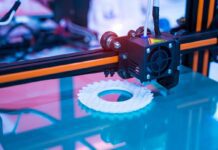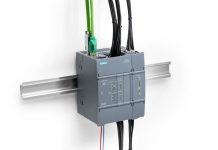
In a recent survey conducted by Universal Robots (UR), a leading Danish collaborative robot (cobot) company, over half of the 1,200 manufacturers surveyed across North America and Europe reported already integrating artificial intelligence (AI) and machine learning (ML) into their production processes.
The findings underscore the increasing significance of these technologies in modern manufacturing, the company said in a media release.
“AI isn’t just hype,” stated Anders Billesø Beck, Vice President for Strategy & Innovation at Universal Robots.
“Though it may only have become a common topic of conversation within the last two years, AI and machine learning are now critical drivers of innovation and efficiency in today’s manufacturing.”
The survey also revealed that nearly 4 per cent of manufacturers plan to further invest in AI and machine learning by 2025.
This approach highlights the pivotal role these technologies are expected to play in shaping the future of the industry.
“We’re experiencing a significant interest in physical AI,” Beck continued.
“Our UR+ ecosystem keeps expanding, and a key driver for this is the rapid increase in AI applications and solutions coming from our partners, including our growing number of OEM partners, opening brand-new opportunities for customers.”
The survey also highlighted the growing importance of digitalization in the manufacturing sector.
Currently, 47 per cent of manufacturers are utilising technologies such as the Internet of Things (IoT), cloud computing, and digital twins.
These tools are instrumental in optimising operations, reducing downtime, and cutting costs through simulations and predictive maintenance.
This shift towards digitalization is enabling manufacturers to adopt more resilient, high-mix production models that are better aligned with market demands.
Over 50 per cent of respondents cited improving product quality, increasing productivity, and enhancing accuracy as their top motivations for embracing new technologies.
Additionally, 30 per cent of manufacturers are leveraging technology to improve working conditions, while 26 per cent are driven by sustainability goals.
Despite the enthusiasm for technological adoption, the survey found that return on investment remains a primary concern for 32 per cent of manufacturers.
Other significant considerations include usability, in-house expertise, safety, and potential disruptions, each cited by approximately 20 per cent of respondents.
For those interested in delving deeper into the survey findings, the full insights can be accessed here.




















